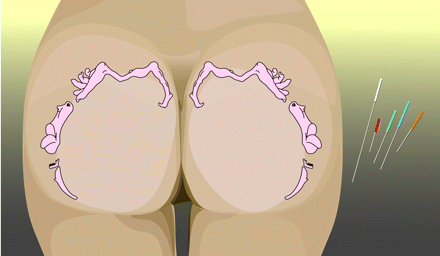March 8th, 2011 by ErikDavis in Opinion, Quackery Exposed
1 Comment »
 This is a guest post from Erik Davis of Skeptic North.
This is a guest post from Erik Davis of Skeptic North.
**********
Bankers, Buyouts & Billionaires: Why Big Herba’s Research Deficit Isn’t About The Money
It’s a scene from the blogosphere that’s become all too familiar. A skeptic challenges a natural health product for the lack of an evidentiary base. A proponent of that product responds that the skeptic has made a logical error — an absence of evidence is not evidence of absence, and in such a scenario it’s not unreasonable to rely on patient reporting and traditional uses as a guide. The skeptic chimes back with a dissertation on the limits of anecdotal evidence and arguments from antiquity — especially when the corresponding pharma products have a data trail supporting their safety and efficacy. The proponent responds that it’s unfair to hold natural health products to the same evidentiary standard, because only pharma has the money to fund proper research, and they only do so for products they can patent. You can’t patent nature, so no research into natural health products gets done.
Okay, so maybe this isn’t a scene from an actual blog. The participants are way too civil, the arguments too coherent, and no one has been compared to Hitler. But it’s not a straw man either (look here, here, and here for recent examples), merely a distillation of an argument I’ve seen made repeatedly — that the deck has been stacked by Big Pharma, which has set a research bar that the much poorer natural health industry can’t possibly meet given the costs and lack of financial upside.
In my observation, skeptics don’t often have a good response to this argument beyond their basic scientific disposition toward only making assertions based on positive evidence. Typically, that’s not a disposition shared by the proponent, and thus they simply agree to disagree (read: trade barbs until the thread peters out from fatigue). Yet this need not be a purely philosophical debate. After all, there’s a testable premise embedded in this disagreement — that the natural health industry isn’t rich enough to sustain proper research. Is that true? Read more »
March 2nd, 2011 by GarySchwitzer in Better Health Network, Opinion
No Comments »

Dr. Barron Lerner has written a book about breast cancer: “The Breast Cancer Wars: Hope, Fear, and the Pursuit of a Cure in Twentieth-Century America.” And he’s written a book about celebrity patients: “When Illness Goes Public: Celebrity Patients and How We Look at Medicine.” He wed the two topics in a blog post on the New York Times health blog entitled “Suzanne Somers, Cancer Expert.” Excerpts:
“Earlier this week, NBC’s “Dateline” devoted an entire hour on Sunday evening to allow the actress Suzanne Somers to express her rather unconventional beliefs about cancer.
It is not the first time a major media outlet has given air time to Ms. Somers, whose journey into the medical realm has been featured on a variety of news programs, talk shows and entertainment channels. A few years ago, Oprah Winfrey invited Ms. Somers on her show to share the secrets behind her youthful appearance — a complex regimen of unregulated hormone creams and some 60 vitamins and supplements.
But is it entirely outrageous that respected media organizations continue to give the “Three’s Company” sitcom star a platform to dispense medical advice? Not really, in a world in which celebrities have become among the most recognizable spokespeople — and sometimes experts — about various diseases.
…
…patients — especially those who want to explore every possible avenue — have the right to know that there are unorthodox cancer therapies that some people believe are helpful.
But not without several caveats, and that is where Ms. Somers, and many of those in the media who discuss her books and views, have failed. Ms. Somers says she is promoting hope, but false hope benefits no one.
Many people with end-stage cancer are, understandably, desperate, and thus potentially vulnerable to a sales pitch — even an expensive one. But here is a case when an informed patient may truly be a wiser patient. Perhaps if doctors were more willing to address the fact that these nontraditional treatments exist, and share what we do and don’t know about their effectiveness, an actress like Ms. Somers would have less influence, and science would override celebrity.”
There’s been quite an online response to Dr. Lerner’s blog post. One reader wrote, succinctly:
“From Thigh Master to Snake Oil.”
*This blog post was originally published at Gary Schwitzer's HealthNewsReview Blog*
February 24th, 2011 by Harriet Hall, M.D. in Health Tips, Research
1 Comment »

I was surprised to get this e-mail from a reader:
Surely, Dr. Hall, the public mania for nutritional supplements is baseless. All the alleged nutrients in supplements are contained in the food we eat. And what governmental agency has oversight responsibility regarding the production of these so-call nutritional supplements? Even if one believes that such pills have value, how can the consumer be assured that the product actually contains what the label signifies? I have yet to find a comment on this subject on your otherwise informative website.
My co-bloggers and I have addressed these issues repeatedly.Peter Lipson covered DSHEA (The Diet Supplement Health and Education Act) nicely. It’s all been said before, but perhaps it needs to be said again — and maybe by writing this post I can make it easier for new readers to find the information.
Food, Medicine, or Something In Between?
The FDA regulates foods and has been instrumental in improving the safety of our food supply. It regulates prescription and over-the-counter medications, requiring evidence of effectiveness and safety before marketing. Surveys have shown that most people falsely assume these protections extend to everything on the shelves including diet supplements, but they don’t.
Under the 1994 Diet Supplement Health and Education Act (DSHEA), a variety of products such as vitamins, minerals, herbs and botanicals, amino acids, enzymes, organ tissues, and hormones can evade the usual controls if they are sold as diet supplements. Under the DSHEA, the manufacturer doesn’t have to prove to the FDA that a product is safe and effective; it is up to the FDA to prove that it isn’t safe, and until recently there was no systematic method of reporting adverse effects (required reporting is still limited to serious effects like death).
So far the FDA has only managed to ban one substance, ephedra, and it took the death of a prominent sports figure and considerable skirmishing with the courts to accomplish that. Independent lab tests of diet supplements have found a high rate of contamination (with things like heavy metals and prescription drugs) and dosages wildly varying from the label. A striking example was Gary Null’s recent poisoning with vitamin D from one of his own products which contained 1,000 times the intended amount.
The FDA has issued rules on good manufacturing practices, but standardization is not required and it remains to be seen whether the new rules will effectively improve product quality. Read more »
*This blog post was originally published at Science-Based Medicine*
February 18th, 2011 by Lucy Hornstein, M.D. in True Stories
2 Comments »

 Never in a million years would I have dreamed I would be able to say this, but I actually recommended a homeopathic remedy today. To briefly review, for anyone who may be under the mistaken impression that homeopathic remedies actually do anything — they don’t. Here’s why in a nutshell:
Never in a million years would I have dreamed I would be able to say this, but I actually recommended a homeopathic remedy today. To briefly review, for anyone who may be under the mistaken impression that homeopathic remedies actually do anything — they don’t. Here’s why in a nutshell:
Homeopathy is an unscientific and absurd pseudoscience, which persists today as an accepted form of complementary medicine, despite there never having been any reliable scientific evidence that it works.
So what on earth possessed me to seriously recommend it? I’ll tell you.
I saw a beautiful little four-month-old today whose mother thinks he might be teething. Everyone thinks their four-month-olds are teething because they start getting more drooly as their hand-mouth coordination improves, allowing them to get more things into their mouths. Most of the time they don’t actually get their teeth until about six months, though four month olds pop out teeth often enough to keep us on their toes. I told her this. She’s cool. Here’s her problem:
“The daycare is getting fussy. They want me to bring in the Oragel. I don’t really think he needs it, and I don’t like the idea of giving medicine when it’s not really necessary.”
Daycares can be fussier than babies sometimes. That’s when I realized that a homeopathic teething remedy is the perfect solution:
- The baby is happy because someone’s rubbing his gums.
- Mom is happy because the baby’s not getting any medicine.
- Daycare is happy because they’re “doing something.”
Win-win-win.
*This blog post was originally published at Musings of a Dinosaur*
December 16th, 2010 by Harriet Hall, M.D. in Better Health Network, Humor, Medical Art, Opinion, Research
No Comments »

In 1996, Alan Sokal got a bogus paper published in the journal Social Text. It was a parody full of meaningless statements in the jargon of postmodern philosophy and cultural studies. The editors couldn’t tell the difference between Sokal’s nonsense and the usual articles they publish.
Now a British professor of medical education, Dr. John McLachlan, has perpetrated a similar hoax on supporters of so-called “integrative” medicine. He reports his prank in an article in the British Medical Journal (BMJ).

After receiving an invitation to submit papers to an International Conference on Integrative Medicine, he invented a ridiculous story about a new form of reflexology and acupuncture with points represented by a homunculus map on the buttocks. He claimed to have done studies showing that
responses are stronger and of more therapeutic value than those of auricular or conventional reflexology. In some cases, the map can be used for diagnostic purposes.
The organizers asked him to submit an abstract. He did. In the abstract he said he would present only case histories, testimonies, and positive outcomes, since his methods did not lend themselves to randomized controlled trials; and he suggested that his “novel paradigm” might lead to automatic rejection by closed minds. Read more »
*This blog post was originally published at Science-Based Medicine*
This is a guest post from Erik Davis of Skeptic North.















